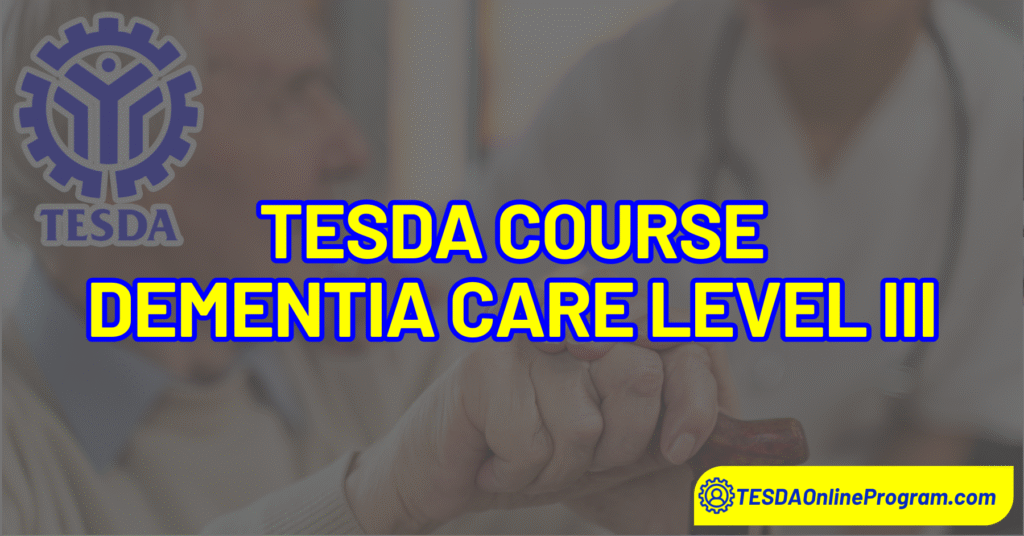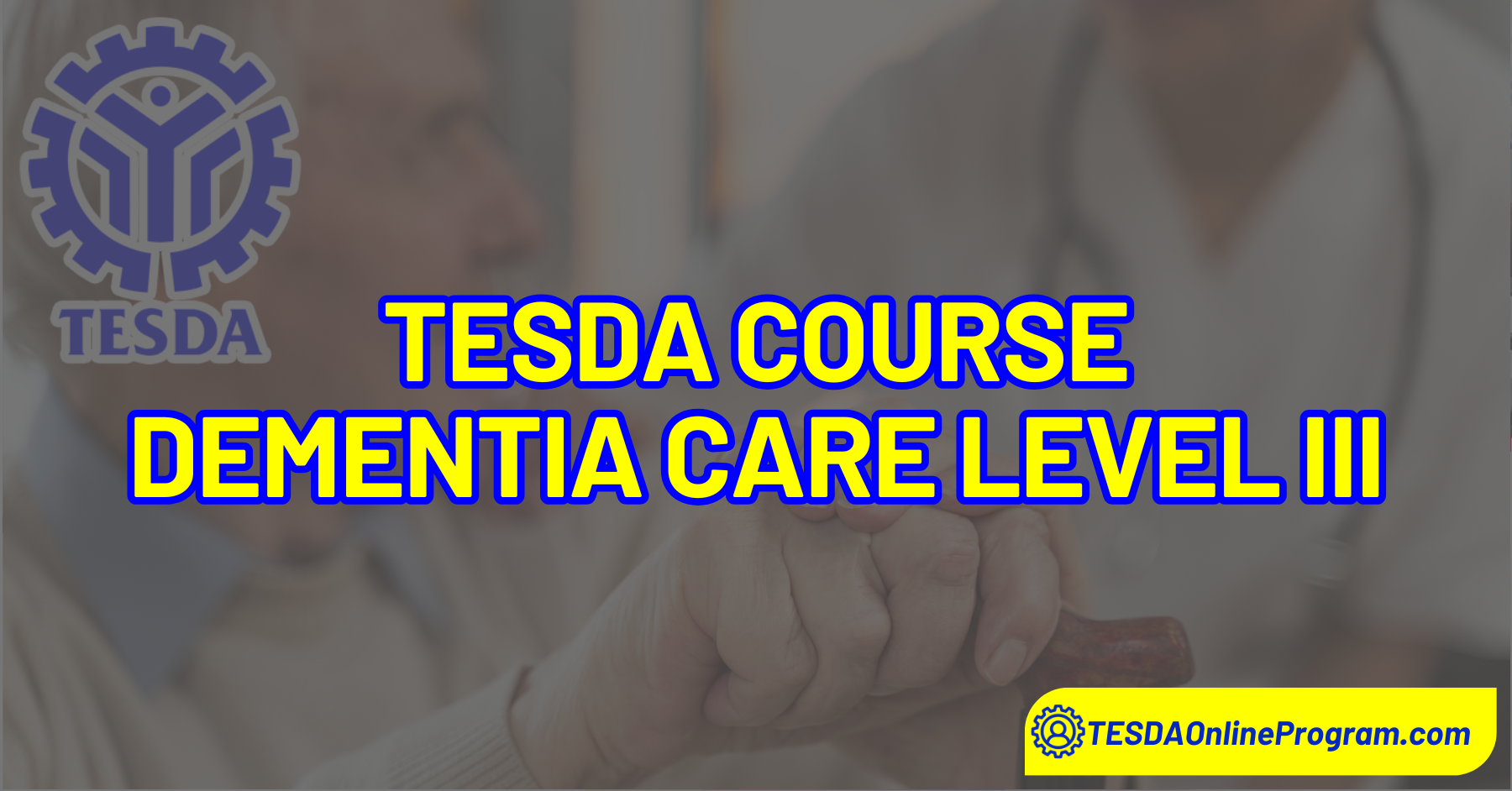The Dementia Care Level III Course offered by TESDA is designed to equip individuals with the advanced skills and knowledge needed to provide specialized care for People Living with Dementia (PLwD). This qualification focuses on comprehensive health assessments, creating and implementing treatment plans tailored to the person’s level of care, and fostering meaningful engagement through recreational and therapeutic activities. Learners are trained to manage the complex Behavior and Psychological Symptoms of Dementia (BPSD) while maintaining a compassionate, person-centered approach that prioritizes dignity, comfort, and quality of life.
Also read: TESDA Caregiving Courses
Beyond daily caregiving, the course also emphasizes critical end-of-life care planning, honoring the preferences and advance directives of individuals under their care. It instills the importance of self-care for dementia care workers, ensuring they maintain their own well-being while handling the emotional and physical demands of the profession. With these competencies, graduates are prepared to work effectively in various care settings, providing professional, empathetic, and holistic support to individuals and families affected by dementia.

Course Description
This course equips learners with skills to assess, plan, and provide specialized care for People Living with Dementia, manage symptoms, support end-of-life care, and maintain caregiver well-being.
Benefits
Here are some Benefits of Taking the Dementia Care Level III Course:
- Gain specialized skills to care for People Living with Dementia (PLwD).
- Learn to create and implement effective treatment and care plans.
- Develop techniques to manage behavioral and psychological symptoms.
- Acquire knowledge in providing compassionate end-of-life care.
- Enhance communication and engagement through therapeutic activities.
- Improve employability in local and international caregiving jobs.
- Strengthen self-care strategies to prevent burnout.
- Contribute to the quality of life and dignity of individuals with dementia.
Units of Competency
Here’s the revised version without the codes and with bullet points:
BASIC COMPETENCIES
- Lead workplace communication
- Lead small teams
- Apply critical thinking and problem-solving techniques in the workplace
- Work in a diverse environment
- Propose methods of applying learning and innovation in the organization
- Use information systematically
- Evaluate occupational safety and health work practices
- Evaluate environmental work practices
- Facilitate entrepreneurial skills for micro-small-medium enterprises (MSMEs)
COMMON COMPETENCIES
- Implement and monitor infection control policies and procedures
- Respond effectively to difficult/challenging behavior
- Apply basic first aid
- Maintain high standard of patient/client services
CORE COMPETENCIES
- Perform health assessment on People Living with Dementia (PLwD)
- Apply treatment plan based on the determined level of care
- Facilitate engagement in recreational and therapeutic activities
- Manage Behavior and Psychological Symptoms of Dementia (BPSD)
- Carry out end-of-life care plan preferences and advance directives
- Manage self-care
Sample of Certificate of Completion

Job Opportunities
A person who completes this course can work as a:
- Dementia Carer
- Dementia Care Worker
Requirements
To enroll in this course, you will need the following documents:
- PSA Birth Certificate
- High School or College Diploma
- Certified True Copy of Official Transcript of Records or Form 137
- Certificate of Good Moral Character or GMRC
- 1 x 1 and/or 2 x 2 pictures
To obtain further details, please reach out to the enrollment site that aligns with your requirements. Kindly note that the criteria may vary.
Also read: TESDA Early Childhood Care and Development Services Level III Course
Summary
The TESDA Dementia Care Level III Course provides advanced training for individuals aiming to deliver specialized, compassionate care to People Living with Dementia (PLwD). It covers health assessment, treatment planning, symptom management, therapeutic activities, end-of-life care, and caregiver self-care, preparing graduates for roles such as dementia carer or dementia care worker. The program includes basic, common, and core competencies, enhancing both technical skills and workplace readiness, with benefits such as improved employability locally and abroad. Enrollment requires standard documents like a PSA birth certificate, diploma, transcript, good moral certificate, and ID photos, with specific requirements varying by training center.

